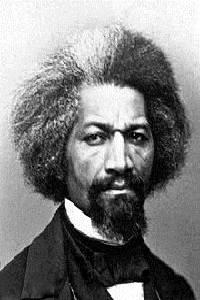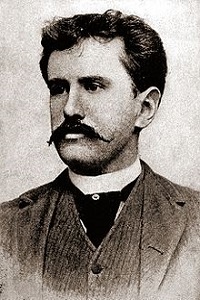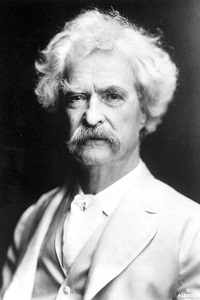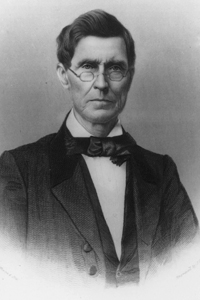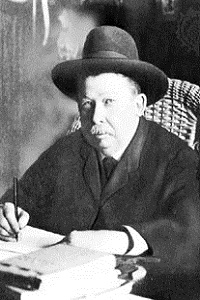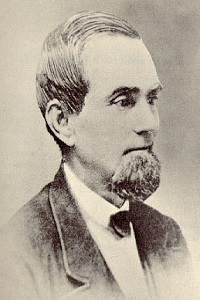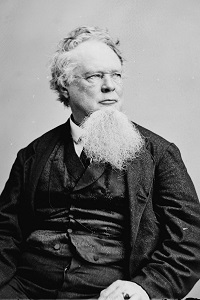The Audio Library of
Classic Southern Literature
1676 to 1923
Made possible by 
Visit our Children's literature site 
Grayling, Chapter 4
Written Text
James Grayling, with the same eager impatience which he has been suffered to describe in his own language, had already hired a boat to go on board the British packet, when he remembered that he had neglected all those means, legal and otherwise, by which alone his purpose might be properly effected. He did not know much about legal process, but he had common sense enough, the moment that he began to reflect on the subject, to know that some such process was necessary. This conviction produced another difficulty; he knew not in which quarter to turn for counsel and assistance; but here the boatman who saw his bewilderment, and knew by his dialect and dress that he was a back-countryman, came to his relief, and from him he got directions where to find the merchants with whom his uncle, Sparkman, had done business in former years. To them he went, and without circumlocution, told the whole story of his ghostly visitation. Even as a dream, which these gentlemen at once conjectured it to be, the story of James Grayling was equally clear and curious; and his intense warmth and the entire absorption, which the subject had effected, of his mind and soul, was such that they judged it not improper, at least to carry out the search of the vessel which he contemplated. It would certainly, they thought, be a curious coincidence -- believing James to be a veracious youth -- if the Scotchman should be found on board. But another test of his narrative was proposed by one of the firm. It so happened that the business agents of Major Spencer, who was well known in Charleston, kept their office but a few rods distant from their own; and to them all parties at once proceeded. But here the story of James was encountered by a circumstance that made somewhat against it. These gentlemen produced a letter from Major Spencer, intimating the utter impossibility of his coming to town for the space of a month, and expressing his regret that he should be unable to avail himself of the opportunity of the foreign vessel, of whose arrival in Charleston, and proposed time of departure, they had themselves advised him. They read the letter aloud to James and their brother merchants, and with difficulty suppressed their smiles at the gravity with which the former related and insisted upon the particulars of his vision. "He has changed his mind," returned the impetuous youth; "he was on his way down, I tell you, --a hundred miles on his way, -- when he camped with us. I know him well, I tell you, and talked with him myself half the night." "At least," remarked the gentlemen who had gone with James, "it can do no harm to look into the business. We can procure a warrant for searching the vessel after this man, Macnab; and should he be found on board the packet, it will be a sufficient circumstance to justify the magistrates in detaining him, until we can ascertain where Major Spencer really is." The measure was accordingly adopted, and it was nearly sunset before the warrant was procured, and the proper officer in readiness. The impatience of a spirit so eager and so devoted as James Grayling, under these delays, may be imagined; and when in the boat, and on his way to the packet where the criminal was to be sought, his blood became so excited that it was with much ado he could be kept in his seat. His quick, eager action continually disturbed the trim of the boat, and one of his mercantile friends, who had accompanied him, with that interest in the affair which curiosity alone inspired, was under constant apprehension lest he would plunge overboard in his impatient desire to shorten the space which lay between.
The same impatience enabled the youth, though never on shipboard before, to grasp the rope which had been flung at their approach, and to mount her sides with catlike agility. Without waiting to declare himself or his purpose, he ran from one side of the deck to the other, greedily staring, to the surprise of officers, passengers, and seamen, in the faces of all of them, and surveying t hem with an almost offensive scrutiny. He turned away from the search with disappointment. There was no face like that of the suspected man among them. By this time, his friend, the merchant, with the sheriff's officer, had entered the vessel, and were in conference with the captain. Grayling drew nigh in time to hear the latter affirm that there was no man of the name of Macnab, as stated in the warrant, among his passengers or crew. "He is -- he must be!" exclaimed the impetuous youth. "The major never lied in his life, and couldn't lie after he was dead. Macnab is here -- he is a Scotchman -- " The captain interrupted him --"We have, young gentleman, several Scotchmen on board, and one of them is named Macleod -- " "Let me see him -- which is he?" demanded the youth. By this time, the passengers and a goodly portion of the crew were collected about the little party. The captain turned his eyes upon the group, and asked, "Where is Mr. Macleod?" "He is gone below -- he's sick!" replied one of the passengers. "That's he! That must be the man!" exclaimed the youth. "I'll lay my life that's no other than Macnab. He's only taken a false name." It was now remembered by one of the passengers, and remarked, that Macleod had expressed himself as unwell, but a few moments before, and had gone below even while the boat was rapidly approaching the vessel. At this statement, the captain led the way into the cabin, closely followed by James Grayling and the rest. "Mr. Macleod," he said with a voice somewhat elevated, as he approached the berth of that person, "you are wanted on deck for a few moments." "I am really too unwell, captain," replied a feeble voice from behind the curtain of the berth. "It will be necessary," was the reply of the captain. "There is a warrant from the authorities of the town, to look after a fugitive from justice." Macleod had already begun a second speech declaring his feebleness, when the fearless youth, Grayling, bounded before the captain and tore away, with a single grasp of his hand, the curtain which concealed the suspected man from their sight.
"It is he!" was the instant exclamation of the youth, as he beheld him. "It is he -- Macnab, the Scotchman -- the man that murdered Major Spencer!" Macnab, -- for it was he, -- was deadly pale. He trembled like an aspen. His eyes were dilated with more than mortal apprehension, and his lips were perfectly livid. Still, he found strength to speak, and to deny the accusation. He knew nothing of the youth before him -- nothing of Major Spencer -- his name was Macleod, and he had never called himself by any other. He denied, but with great incoherence, everything which was urged against him. "You must get up, Mr. Macleod," said the captain; "the circumstances are very much against you. You must go with the officer!" "Will you give me up to my enemies?" demanded the culprit. "You are a countryman -- a Briton. I have fought for the king, our master, against these rebels, and for this they seek my life. Do not deliver me into their bloody hands!" "Liar!" exclaimed James Grayling -- "Didn't you tell us at our own camp-fire that you were with us? that you were at Gates's defeat, and Ninety-Six?" "But I didn't tell you," said the Scotchman, with a grin, "which side I was on!""Ha! remember that!" said the sheriff's officer. "He denied, just a moment ago, that he knew this young man at all; now, he confesses that he did see and camp with him." The Scotchman was aghast at the strong point which, in his inadvertence, he had made against himself; and his efforts to excuse himself, stammering and contradictory, served only to involve him more deeply in the meshes of his difficulty. Still he continued his urgent appeals to the captain of the vessel, and his fellow-passengers, as citizens of the same country, subjects to the same monarch, to protect him from those who equally hated and would destroy them all. In order to move their national prejudices in his behalf, he boasted of the immense injury which he had done, as a tory, to the rebel cause; and still insisted that the murder was only a pretext of the youth before him, by which to gain possession of his person, and wreak upon him the revenge which his own fierce performances during the war had naturally enough provoked. One or two of the passengers, indeed, joined with him in entreating the captain to set the accusers adrift and make sail at once; but the stout Englishman who was in command, rejected instantly the unworthy counsel. Besides, he was better aware of the dangers which would follow any such rash proceeding. Fort Moultrie, on Sullivan's Island, had been already refitted and prepared for an enemy; and he was lying, at that moment, under the formidable range of grinning teeth, which would have opened upon him, at the first movement, from the jaws of Castle Pinckney. "No, gentlemen," said he, "you mistake your man. God forbid that I should give shelter to a murderer, though he were from my own parish." "But I am no murderer," said the Scotchman.
"You look cursedly like one, however," was the reply of the captain. "Sheriff, take your prisoner." The base creature threw himself at the feet of the Englishman, and clung, with piteous entreaties, to his knees. The latter shook him off, and turned away in disgust. "Steward," he cried, "bring up this man's luggage." He was obeyed. The luggage was brought up from the cabin and delivered to the sheriff's officer, by whom it was examined in the presence of all, and an inventory made of its contents. It consisted of a small new trunk, which, it afterwards appeared, he had bought in Charleston, soon after his arrival. This contained a few changes of raiment, twenty-six guineas in money, a gold watch, not in repair, and the two pistols which he had shown while at Joel Sparkman's camp fire; but, with this difference, that the stock of one was broken off short just above the grasp, and the butt was entirely gone. It was not found among his chattels. A careful examination of the articles in his trunk did not result in anything calculated to strengthen the charge of his criminality; but there was not a single person present who did not feel as morally certain of his guilt as if the jury had already declared the fact. That night he slept -- if he slept at all -- in the common jail of the city.
………………..
“GRAYLING CHAPTER 4”
By William Gilmore Simms
Read by Tom Turner
Directed by Walter Evans
Copyright Georgia Regents University
2013 All rights reserved
The same impatience enabled the youth, though never on shipboard before, to grasp the rope which had been flung at their approach, and to mount her sides with catlike agility. Without waiting to declare himself or his purpose, he ran from one side of the deck to the other, greedily staring, to the surprise of officers, passengers, and seamen, in the faces of all of them, and surveying t hem with an almost offensive scrutiny. He turned away from the search with disappointment. There was no face like that of the suspected man among them. By this time, his friend, the merchant, with the sheriff's officer, had entered the vessel, and were in conference with the captain. Grayling drew nigh in time to hear the latter affirm that there was no man of the name of Macnab, as stated in the warrant, among his passengers or crew. "He is -- he must be!" exclaimed the impetuous youth. "The major never lied in his life, and couldn't lie after he was dead. Macnab is here -- he is a Scotchman -- " The captain interrupted him --"We have, young gentleman, several Scotchmen on board, and one of them is named Macleod -- " "Let me see him -- which is he?" demanded the youth. By this time, the passengers and a goodly portion of the crew were collected about the little party. The captain turned his eyes upon the group, and asked, "Where is Mr. Macleod?" "He is gone below -- he's sick!" replied one of the passengers. "That's he! That must be the man!" exclaimed the youth. "I'll lay my life that's no other than Macnab. He's only taken a false name." It was now remembered by one of the passengers, and remarked, that Macleod had expressed himself as unwell, but a few moments before, and had gone below even while the boat was rapidly approaching the vessel. At this statement, the captain led the way into the cabin, closely followed by James Grayling and the rest. "Mr. Macleod," he said with a voice somewhat elevated, as he approached the berth of that person, "you are wanted on deck for a few moments." "I am really too unwell, captain," replied a feeble voice from behind the curtain of the berth. "It will be necessary," was the reply of the captain. "There is a warrant from the authorities of the town, to look after a fugitive from justice." Macleod had already begun a second speech declaring his feebleness, when the fearless youth, Grayling, bounded before the captain and tore away, with a single grasp of his hand, the curtain which concealed the suspected man from their sight.
"It is he!" was the instant exclamation of the youth, as he beheld him. "It is he -- Macnab, the Scotchman -- the man that murdered Major Spencer!" Macnab, -- for it was he, -- was deadly pale. He trembled like an aspen. His eyes were dilated with more than mortal apprehension, and his lips were perfectly livid. Still, he found strength to speak, and to deny the accusation. He knew nothing of the youth before him -- nothing of Major Spencer -- his name was Macleod, and he had never called himself by any other. He denied, but with great incoherence, everything which was urged against him. "You must get up, Mr. Macleod," said the captain; "the circumstances are very much against you. You must go with the officer!" "Will you give me up to my enemies?" demanded the culprit. "You are a countryman -- a Briton. I have fought for the king, our master, against these rebels, and for this they seek my life. Do not deliver me into their bloody hands!" "Liar!" exclaimed James Grayling -- "Didn't you tell us at our own camp-fire that you were with us? that you were at Gates's defeat, and Ninety-Six?" "But I didn't tell you," said the Scotchman, with a grin, "which side I was on!""Ha! remember that!" said the sheriff's officer. "He denied, just a moment ago, that he knew this young man at all; now, he confesses that he did see and camp with him." The Scotchman was aghast at the strong point which, in his inadvertence, he had made against himself; and his efforts to excuse himself, stammering and contradictory, served only to involve him more deeply in the meshes of his difficulty. Still he continued his urgent appeals to the captain of the vessel, and his fellow-passengers, as citizens of the same country, subjects to the same monarch, to protect him from those who equally hated and would destroy them all. In order to move their national prejudices in his behalf, he boasted of the immense injury which he had done, as a tory, to the rebel cause; and still insisted that the murder was only a pretext of the youth before him, by which to gain possession of his person, and wreak upon him the revenge which his own fierce performances during the war had naturally enough provoked. One or two of the passengers, indeed, joined with him in entreating the captain to set the accusers adrift and make sail at once; but the stout Englishman who was in command, rejected instantly the unworthy counsel. Besides, he was better aware of the dangers which would follow any such rash proceeding. Fort Moultrie, on Sullivan's Island, had been already refitted and prepared for an enemy; and he was lying, at that moment, under the formidable range of grinning teeth, which would have opened upon him, at the first movement, from the jaws of Castle Pinckney. "No, gentlemen," said he, "you mistake your man. God forbid that I should give shelter to a murderer, though he were from my own parish." "But I am no murderer," said the Scotchman.
"You look cursedly like one, however," was the reply of the captain. "Sheriff, take your prisoner." The base creature threw himself at the feet of the Englishman, and clung, with piteous entreaties, to his knees. The latter shook him off, and turned away in disgust. "Steward," he cried, "bring up this man's luggage." He was obeyed. The luggage was brought up from the cabin and delivered to the sheriff's officer, by whom it was examined in the presence of all, and an inventory made of its contents. It consisted of a small new trunk, which, it afterwards appeared, he had bought in Charleston, soon after his arrival. This contained a few changes of raiment, twenty-six guineas in money, a gold watch, not in repair, and the two pistols which he had shown while at Joel Sparkman's camp fire; but, with this difference, that the stock of one was broken off short just above the grasp, and the butt was entirely gone. It was not found among his chattels. A careful examination of the articles in his trunk did not result in anything calculated to strengthen the charge of his criminality; but there was not a single person present who did not feel as morally certain of his guilt as if the jury had already declared the fact. That night he slept -- if he slept at all -- in the common jail of the city.
………………..
“GRAYLING CHAPTER 4”
By William Gilmore Simms
Read by Tom Turner
Directed by Walter Evans
Copyright Georgia Regents University
2013 All rights reserved
